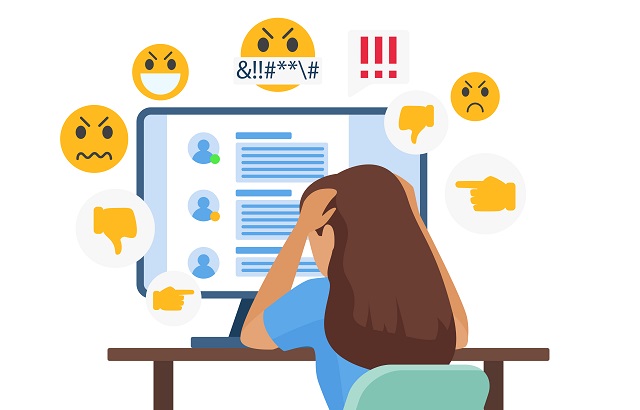The financial services sector has certainly seen its share of high-profile cases, from sexual harassment to bullying.
In the current climate, where in particular there is a renewed focus on sexual harassment and gender-based violence, thorough and robust workplace investigations to create safer workplaces are more vital than ever, write Maria Strauss and David Hunt, partners at law firm Farrer & Co.
Importance of seeing through investigations
The Acas Code of Practice on disciplinary and grievance procedures and any appropriately drafted workplace policy require investigations to be conducted into any disclosures or allegations of misconduct.
To ensure fairness for all parties involved, allegations should be thoroughly and appropriately investigated to ascertain the facts, so subsequent decisions are based on sound findings.
What’s more, by responding to allegations appropriately, organisations send a clear signal to their staff that individuals can come forward and be confident that their allegations will be taken seriously, helping to create the all-important ‘speak up’ culture.
This requires organisations to have systems and controls in place where they are made aware of and can uncover examples of bullying and harassment, or any other issues.
This is not only crucial given the impact such matters can have on the welfare and morale of the workforce, but also due to the cultural issues they can create and the wider risks they can pose to the business, including reputation, staff retention and grievances.
Key considerations for financial services
Employers should always consider whether allegations may potentially be a criminal or a regulatory matter that might either be better investigated by the police or referred to the financial regulators. They will then be able to work collaboratively with those agencies to ensure matters are dealt with appropriately, and that suitable specialist advice is taken.
Even if a case is criminal or regulatory in nature, there are scenarios where an employer should still carry out its own investigation, working with the statutory partners. Indeed, the regulator may request that the matter is first investigated by the employer.
In the criminal context, there may also be other matters to investigate in addition to the core allegations. For example, an allegation of rape in the workplace would fall to the police to investigate, but an employer in this case could investigate related allegations of bullying and workplace culture, ensuring that there is a proper protocol in place with the police for interviewing witnesses and taking specialist advice.
Although parallel criminal/regulatory investigations and workplace investigations need to be handled carefully, they are definitely possible.
Where the case is not criminal or regulatory in nature, then an employer can proceed with their own investigation, ensuring that witnesses, staff, and the accused person are appropriately supported throughout the process.
Employers should be very alive to the needs of all parties and create appropriate support plans, incorporating any reasonable adjustments needed to take into account any specific circumstances of any party.
Taking the first steps
There are many factors to consider at the outset of an investigation, such as which personnel should be involved in the investigation and the relevant terms of reference. Measures to preserve relevant evidence must be put in place immediately to avoid the risk of deletion, enlisting the support of trusted IT colleagues when gathering digital evidence.
Similarly, employers should always consider what type of investigation is appropriate in the circumstances. This depends on what is being dealt with:
- Is it a one-off case, or are there several complainants?
- Are there a number of people accused of misconduct?
- Does HR and management have the time, capacity and expertise to investigate the issues, or is an external investigator required?
- Are senior managers being investigated, and does this warrant an external investigator?
- Are staff reluctant to come forward for fear of career impact or reprisals and if so, what steps can be taken to provide reassurance?
When senior members of staff are being investigated, management should consider whether they need to provide clear instructions in writing setting out certain conditions, such as no contact with key witnesses, to protect the integrity of the investigation and instil confidence in the staff involved.
Maintaining momentum with investigations in covid times
The covid crisis has caused several new problems for handling investigations, but in the remote working world many HR and management teams have quickly innovated and adapted.
However, there are some key principles relating to investigations and virtual working that are worth remembering:
- Don’t delay. Remote working is here to stay, and postponing an investigation while you wait for the physical workplace to reopen is not going to be an option. Delays could result in allegations becoming stale, as recollections fade and issues are allowed to fester. It could also cause a breach of the Acas Code, with the potential for a 25% uplift in any subsequent Tribunal award.
- Follow procedure. Despite the pandemic and the virtual workplace, all of the usual procedural requirements and rules of best practice apply. This means following Acas and EHRC guidance and ensuring you adapt your procedures for a virtual setting. Continuing to use your template letters and meetings scripts, adapted where necessary to take account of virtual working, will help ensure that you comply with your obligations.
Finally, though it may look like the end of virtual working is on the horizon, the necessity to adapt investigations to this new environment is likely to persist for some time.
So, though virtual investigations present a number of additional challenges for HR, which require careful planning and forethought, they can – and should – continue to be conducted wherever possible.
This article was written for International Adviser by Maria Strauss and David Hunt, partners at law firm Farrer & Co.








